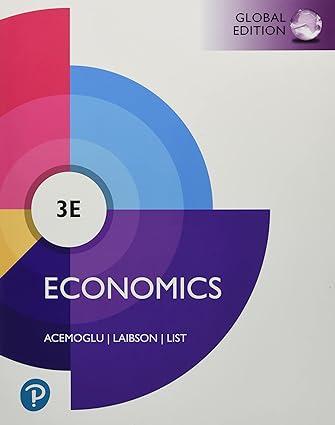Lets return to our examination of whether workers with 4-year college degrees earn more than workers with
Question:
Let’s return to our examination of whether workers with 4-year college degrees earn more than workers with high school degrees. In the first Evidence-Based Economics module, we provided data about earnings for U.S. workers.
We showed that the median earnings of full-time workers with a college degree was 56 percent higher than the median earnings of full-time workers with a high school degree, holding age fixed. From these data alone, can we infer that going to college causes higher wages? Choose one of the four answers below.
i. Not necessarily. Higher earnings for college-educated workers might be due to preexisting characteristics that caused those workers to go to college and also cause those workers to earn more. This is called reverse causality.
ii. Not necessarily. Higher earnings for college-educated workers might be due to preexisting characteristics that caused those workers to go to college and also cause those workers to earn more. This is called an omitted variable problem.
iii. Yes. Being a college graduate is positively correlated with earnings.
iv. Yes. Being a college graduate is positively correlated with earnings, and this is true even when we compare workers of the same age.
Step by Step Answer:

3E Economics
ISBN: 9781292411019
3rd Global Edition
Authors: Daron Acemoglu, David Laibson , John List






